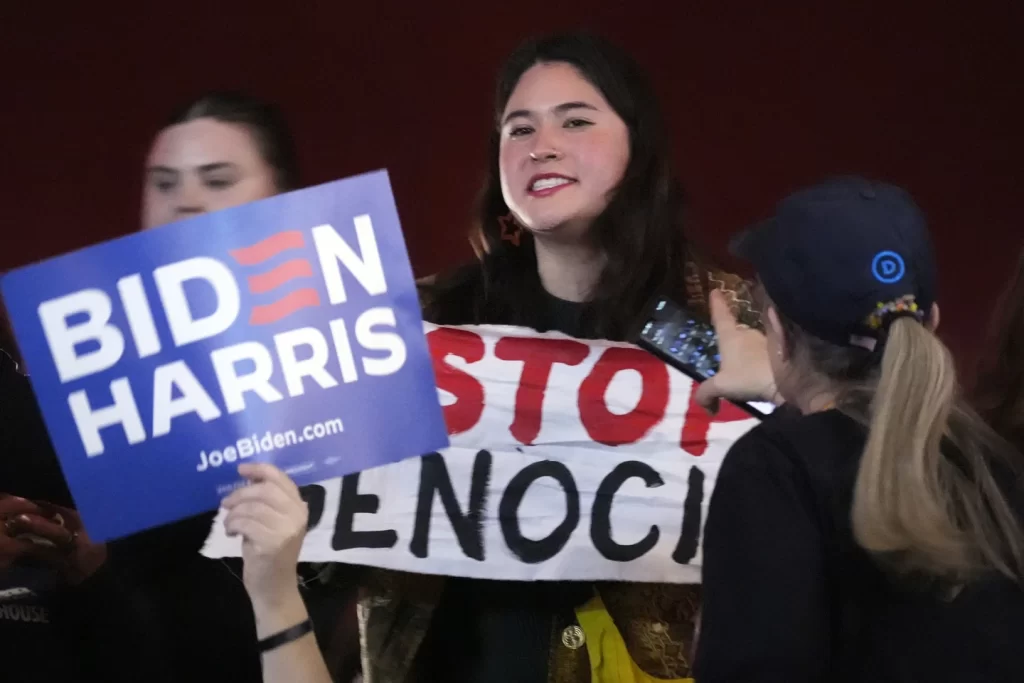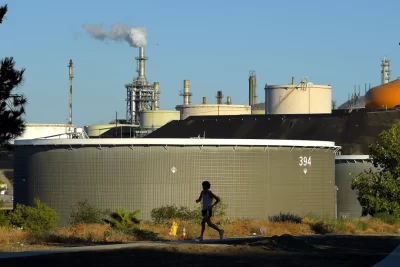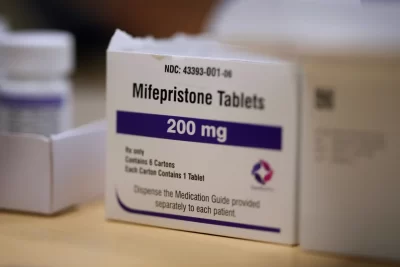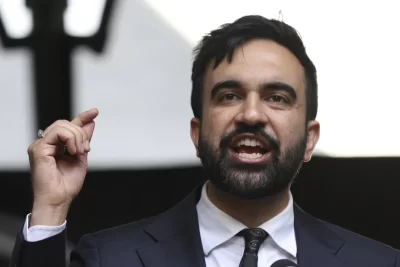
LANSING, Mich. — The protest-vote movement over President Joe Biden’s handling of the Israel-Hamas war has spread to several states and raised more questions about whether a small but significant number of Democrats angry at Biden might abandon him in November.
A week after 101,000 Michigan voters chose “uncommitted” on their ballots, so did roughly 263,000 voters in the five Super Tuesday states where similar ballot options were available. Minnesota, which had the most organized effort outside of Michigan, saw 1 in 5 Democratic voters mark the “uncommitted” option, a higher percentage than the 13% who voted uncommitted in Michigan.
Organizers are watching the state of Washington’s primary on Tuesday to see how many voters select “uncommitted.” And a “Leave It Blank” campaign has formed for Georgia’s Tuesday primary that’s intended to have the same effect, as is a “uninstructed” vote in Wisconsin’s April 2 primary.
Supporters of the protest argue anger over the war could endanger Biden’s chances in swing states like Michigan against former President Donald Trump in their likely rematch. Biden’s allies believe disaffected Democrats will return to the president’s fold when faced with a choice between him and Trump, who the president’s campaign has argued is a threat to democracy and is planning a sweeping set of policy changes that would attack liberal priorities.
While the reasons for voters favoring unpledged delegates over Biden may differ, the choice has been increasingly pushed as a protest vote against Biden’s handling of the conflict in Gaza, where more than 30,000 people have been killed, two-thirds of them women and children, in Israel’s offensive following Hamas’ Oct. 7 attack that killed 1,200 people.
“We wanted to show that these voters not only morally matter but politically matter as well. Because if they sit out the election, which it seems like many of them might, that would have severe consequences for Biden,” said Waleed Shahid, a Democratic strategist who first organized the effort in Michigan.
Lauren Hitt, a Biden campaign spokeswoman, said following the Super Tuesday primaries that the president “believes making your voice heard and participating in our democracy is fundamental to who we are as Americans.”
“He shares the goal for an end to the violence and a just, lasting peace in the Middle East. He’s working tirelessly to that end,” Hitt added.
As Biden’s supporters are quick to point out, the “uncommitted” vote isn’t a historical anomaly. In 2012, over 400,000 people cast their ballots as “uncommitted” or “no preference,” expressing discontent with then-President Barack Obama’s reelection. Biden has won every state’s primary contest so far and is on track to clinch the nomination this month.
Still, the single-issue campaign has alarmed some of Biden’s closest allies.
“Obama’s results were just randomized. This is showing that there are particular groups of our coalition that are upset,” said Rep. Ro Khanna, a Biden surrogate and cease-fire supporter.
In late January, Shahid circulated a seven-page memo to nearly 100 pro-Palestinian leaders and organizations nationwide with a plan to leverage Michigan’s substantial Arab American population to create maximum electoral disruption.
Michigan’s dual role as an early primary state and a pivotal swing state in November provided an ideal situation for attracting national media attention and influential political figures. Coming less than a month before Michigan’s Feb. 27 primary, the Jan. 29 memo proposed a plan requiring a budget of approximately $237,000 to “politicize and electoralize discontent” for Biden’s support of Israel.
Over 100,000 people voted “uncommitted” on Feb. 27, far exceeding a 10,000 vote goal that had been intentionally set low. Khanna, the California congressman, said Biden’s recent references to a potential cease-fire were a “direct result” of the grassroots movement in Michigan.
Biden announced at his State of the Union speech that the U.S. would build a floating pier to deliver aid to Gaza as Israel has restricted the flow of food and other goods at land ports. While the state’s primary was a success for organizers, Shahid said his memo “had nothing beyond Michigan.”
Hoping to capitalize on the momentum generated in Michigan, small “uncommitted” campaigns on shoestring budgets began to pop up across the country.
In Minnesota, organizers began making phone calls to voters just five days before the state’s Super Tuesday primary, operating on a $20,000 budget. The last-minute push secured 46,000 “uncommitted” votes, comprising 19% of the total vote share and earning 11 delegates bound for the Democratic national convention.
Minnesota voter Sarah Alfaham voted in the state’s Democratic primary — as she has for many years — but opted to mark “uncommitted” on her ballot. “Joe Biden has not done enough to earn my vote and not done enough to stop the war,” said Alfaham.
Marcus Casillas, 29, was one of the 51,000 people that voted uncommitted in Colorado’s March 5 primary. The aerospace engineer was inspired by Michigan voters, and chose “uncommitted” rather than another Democratic candidate because “being part of a more organized protest vote seemed appropriate.”
“I firmly believe that in order for me to vote for someone, they need to earn the vote,” he said.
The largest effort outside of Michigan has taken place in Washington state, which is set to hold its primary Tuesday. The biggest labor union in Washington, the chapter of the United Food and Commercial Workers, has endorsed voting “uncommitted” in the primary, as have some local Democratic leaders.
The impact of Washington’s uncommitted movement could be blunted by the fact that its primary is mostly conducted by early mail-in ballots. Close to a million ballots had been turned in as of Thursday, according to the Washington Secretary of State.
But organizers in different states say they feel they’ve already exceeded expectations.
“One of the coolest comments that I’ve read is people saying this is the most organized they’ve seen Democrats in a really long time,” said Asma Nizami, a spokesperson for Minnesota’s “uncommitted” campaign. “We’re doing it across state lines and we’re doing it together.”







